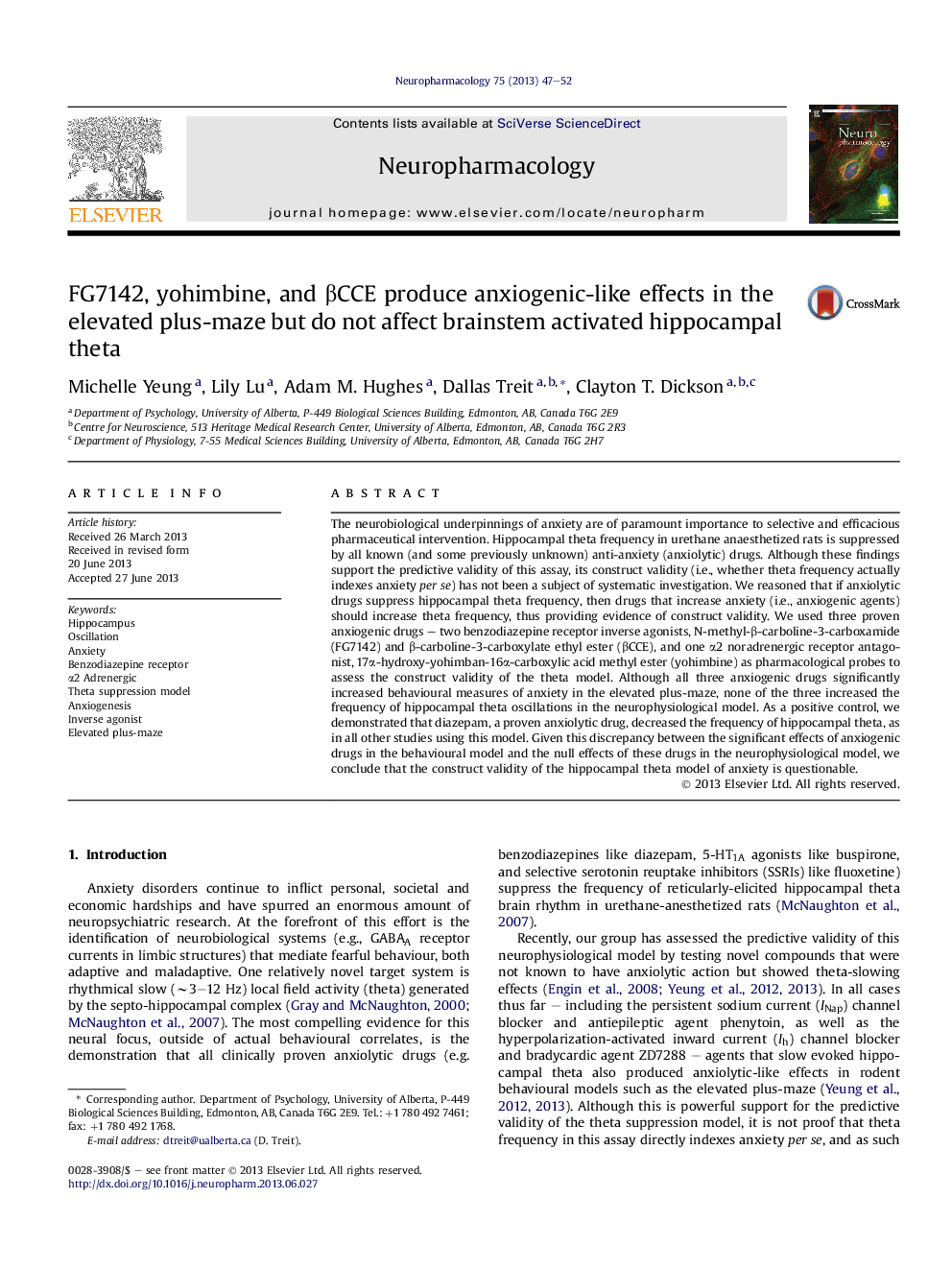| Article ID | Journal | Published Year | Pages | File Type |
|---|---|---|---|---|
| 2493341 | Neuropharmacology | 2013 | 6 Pages |
•Decreases in hippocampal theta frequency under urethane indicate anxiolytic action.•The relationship of theta frequency in this assay to anxiety itself is unknown.•If theta frequency indexes anxiety per se, anxiogenic drugs should increase it.•Anxiogenic drugs increased behavioural anxiety but not hippocampal theta frequency.•Changes in theta frequency in this assay are unlikely to index anxiety per se.
The neurobiological underpinnings of anxiety are of paramount importance to selective and efficacious pharmaceutical intervention. Hippocampal theta frequency in urethane anaesthetized rats is suppressed by all known (and some previously unknown) anti-anxiety (anxiolytic) drugs. Although these findings support the predictive validity of this assay, its construct validity (i.e., whether theta frequency actually indexes anxiety per se) has not been a subject of systematic investigation. We reasoned that if anxiolytic drugs suppress hippocampal theta frequency, then drugs that increase anxiety (i.e., anxiogenic agents) should increase theta frequency, thus providing evidence of construct validity. We used three proven anxiogenic drugs – two benzodiazepine receptor inverse agonists, N-methyl-β-carboline-3-carboxamide (FG7142) and β-carboline-3-carboxylate ethyl ester (βCCE), and one α2 noradrenergic receptor antagonist, 17α-hydroxy-yohimban-16α-carboxylic acid methyl ester (yohimbine) as pharmacological probes to assess the construct validity of the theta model. Although all three anxiogenic drugs significantly increased behavioural measures of anxiety in the elevated plus-maze, none of the three increased the frequency of hippocampal theta oscillations in the neurophysiological model. As a positive control, we demonstrated that diazepam, a proven anxiolytic drug, decreased the frequency of hippocampal theta, as in all other studies using this model. Given this discrepancy between the significant effects of anxiogenic drugs in the behavioural model and the null effects of these drugs in the neurophysiological model, we conclude that the construct validity of the hippocampal theta model of anxiety is questionable.
